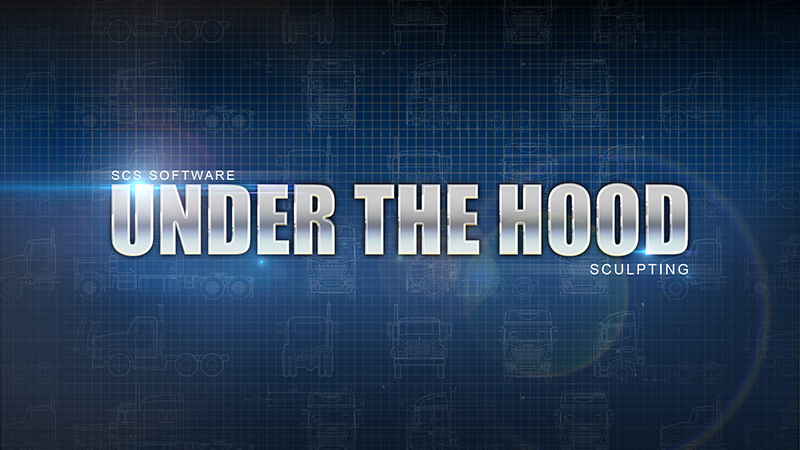There’s historical past hidden beneath your island, simply ready to be dug up. Here’s a guidelines of each fossil in Animal Crossing: New Horizons, so you possibly can hold observe of your paleontological development.

New Horizons has been out within the wild world for a superb few weeks now, and plenty of gamers can have sniffed out a burgeoning assortment of fossils. But in contrast to Animal Crossing’s fish stocks – and ecosystem of bugs – there isn’t a useful Critterpedia to maintain observe of all the things.
It may be tough and time consuming to recollect what number of components of every massive fossil, and what number of items general, you continue to have to uncover.
- How to find fossils in Animal Crossing: New Horizons
- What to do with fossils in Animal Crossing: New Horizons
- Animal Crossing: New Horizons Fossils prices – Full List
How to search out fossils in Animal Crossing: New Horizons
In Animal Crossing: New Horizons, you discover fossils by utilizing a shovel on cracks within the floor.
Between 2 and 6 of those cracks seem day by day, and appear to turn into extra frequent as you progress by way of the game. Check throughout your island every single day for brand new spots that seem.
While cracks most frequently include fossils, there are a few exceptions. Sometimes, the cracks are used to cover occasion gadgets just like the Earth Egg in Bunny Day. Also, for those who see a crack within the floor subsequent to a bamboo plant, then it’s going to include a bamboo shoot.
When you dig up a fossil, even for those who’ve seen that one earlier than, it will likely be unidentified – which brings us onto the following level.
What to do with fossils in Animal Crossing: New Horizons
There are three foremost issues you are able to do with fossils in Animal Crossing: New Horizons. Your first port of name with any unidentified fossils needs to be Tom Nook proper firstly of the game, after which Blathers as soon as the city museum is open.
Blathers will assess any and all fossils you hand over to him, so don’t be shy about filling your pockets.
Once the fossils have been assessed, you’ve got a alternative. You can donate one in all every kind of fossil to the museum to bolster their assortment. This is extremely really helpful, because the museum is a ravishing house and filling it is without doubt one of the cornerstones of the game.
However, Blathers can’t settle for multiples of the identical type of fossil. If you’ve got spare fossils left over, you possibly can both show them in your island for a good increase to your island rating (we have a page on how to get 5 stars, here).
Or you possibly can promote them to Timmy and Tommy at Nook’s Cranny for a good wodge of money. While the displayed fossils do look spectacular, they could be a nice supply of dependable revenue every single day as effectively.
Because there’s solely so many characters that match into an merchandise title, lots of the fossils in New Horzions have their full names lower off. Here’s all the dinosaurs and historic animals that characteristic:
- Ankylosaurus
- Archelon
- Brachiosaurus
- Deinonychus
- Dunkleosteus
- Diplodocus
- Dimetrodon
- Iguanodon
- Mammoth
- Megacerops
- Megaloceros
- Ophthalmosaurus
- Pachycephalosaurus
- Parasaurolophus
- Plesiosaurus
- Pteranodon
- Quetzalcoatlus
- Sabertooth Tiger
- Spinosaurus
- Stegosaurus
- Triceratops
- Tyrannosaurus Rex
Animal Crossing: New Horizons Fossil costs – Full List
Below is a listing of each fossil in Animal Crossing: New Horizons, together with its promoting worth at Nook’s Cranny and whether or not it’s half of a bigger set or not.
The worth knowledge comes from the Animal Crossing wiki community under CC-BY-SA license, which suggests you possibly can reproduce and remix the information as you want as effectively.
| Animal Crossing:New Horizons Fossil Prices | ||
|---|---|---|
| Fossil Name: | Fossil Price: | Part of a set? |
| Acanthostega | 2000 | N |
| Amber | 1200 | N |
| Ammonite | 1100 | N |
| Anomalocaris | 2000 | N |
| Archaeopteryx | 1300 | N |
| Australopith | 1100 | N |
| Coprolite | 1100 | N |
| Dinosaur Track | 1000 | N |
| Dunkleosteus | 3500 | N |
| Eusthenopteron | 2000 | N |
| Juramaia | 1000 | N |
| Myllokunmingia | 1500 | N |
| Shark-tooth Pattern | 1000 | N |
| Trilobite | 1300 | N |
| Ankylo cranium | 5000 | Y |
| Ankylo torso | 3000 | Y |
| Ankylo tail | 2500 | Y |
| Archelon cranium | 4000 | Y |
| Archelon tail | 3500 | Y |
| Brachio cranium | 6000 | Y |
| Brachio chest | 5500 | Y |
| Brachio pelvis | 5000 | Y |
| Brachio tail | 5500 | Y |
| Deinony torso | 3000 | Y |
| Deinony tail | 2500 | Y |
| Dimetrodon cranium | 5500 | Y |
| Dimetrodon torso | 5000 | Y |
| Diplo cranium | 5000 | Y |
| Diplo neck | 4500 | Y |
| Diplo chest | 4000 | Y |
| Diplo pelvis | 4500 | Y |
| Diplo tail | 5000 | Y |
| Diplo tail tip | 4000 | Y |
| Iguanodon cranium | 4000 | Y |
| Iguanodon torso | 3500 | Y |
| Iguanodon tail | 3000 | Y |
| Mammoth cranium | 3000 | Y |
| Mammoth torso | 2500 | Y |
| Megacero cranium | 4500 | Y |
| Megacero torso | 3500 | Y |
| Megacero tail | 3000 | Y |
| Right Megalo aspect | 5500 | Y |
| Left Megalo aspect | 4000 | Y |
| Ophthalmo cranium | 2500 | Y |
| Ophthalmo torso | 2000 | Y |
| Pachysaurus cranium | 4000 | Y |
| Pachysaurus tail | 3500 | Y |
| Parasaur cranium | 3500 | Y |
| Parasaur torso | 3000 | Y |
| Parasaur tail | 2500 | Y |
| Plesio cranium | 4000 | Y |
| Plesio physique | 4500 | Y |
| Plesio tail | 4500 | Y |
| Ptera physique | 4000 | Y |
| Right Ptera wing | 4500 | Y |
| Left Ptera wing | 4500 | Y |
| Quetzal torso | 4500 | Y |
| Right Quetzal wing | 5000 | Y |
| Left Quetzal wing | 5000 | Y |
| Sabertooth cranium | 2500 | Y |
| Sabertooth tail | 2000 | Y |
| Spino cranium | 4000 | Y |
| Spino torso | 5000 | Y |
| Spino tail | 2500 | Y |
| Stego cranium | 5000 | Y |
| Stego torso | 4500 | Y |
| Stego tail | 4000 | Y |
| T. Rex cranium | 6000 | Y |
| T. Rex torso | 5500 | Y |
| T. Rex tail | 5000 | Y |
| Tricera tail | 5500 | Y |
| Tricera torso | 5000 | Y |
| Tricera tail | 4500 | Y |
For extra info on Animal Crossing: New Horizons, check out our pages on Redd’s fake art gallery of paintings and statues, as well as our full guide.


